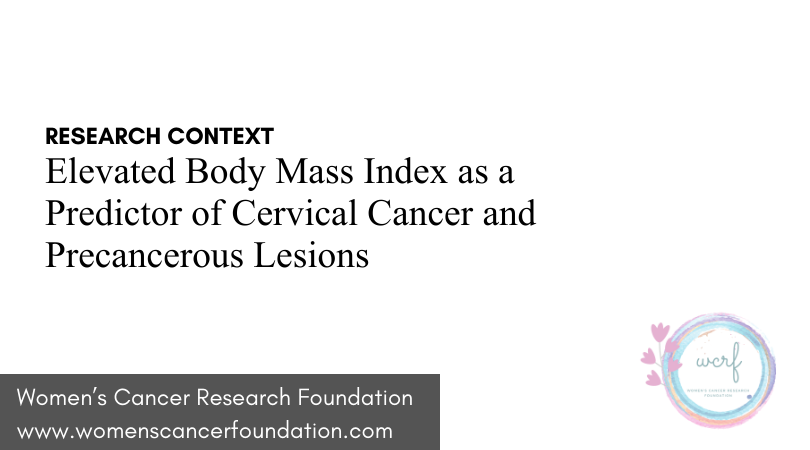Understanding Your Risk: What Are My Chances of Being Diagnosed with Gynecologic Cancer?
- Women's Cancer Research Foundation

- Feb 16, 2024
- 2 min read

Gynecologic cancers impact thousands of women each year yet understanding your individual risk can empower you to take proactive steps towards prevention and early detection. Let's delve into the statistics of five common gynecologic cancers to shed light on your chances of diagnosis.
Cervical Cancer:
With nearly 13,900 new cases expected this year, cervical cancer remains a significant health concern. While the disease predominantly affects women aged 35 to 44, around 20% of new cases occur in women over 65. Fortunately, cervical cancer is highly preventable, largely attributed to the human papillomavirus (HPV). The availability of an effective HPV vaccine has contributed to a decline in cervical cancer diagnoses over the years.
Understanding your individual risk can empower you to take proactive steps towards prevention and early detection.
Endometrial (Uterine) Cancer:
Annually, approximately 66,200 women in the USA receive a diagnosis of endometrial cancer. This cancer is relatively rare in women under 45, with the average age of diagnosis being 60. Notably, endometrial cancer occurs more frequently in Black females compared to White females.
Ovarian Cancer:
Ovarian cancer is expected to affect nearly 19,700 women in 2023, with approximately 1 in 78 women facing a diagnosis in their lifetime. Regrettably, ovarian cancer claims more lives than any other gynecologic cancer. Typically diagnosed in older women, with around half of survivors being 63 years or older, ovarian cancer exhibits a higher incidence among White females than Black females.
Vaginal Cancer:
Vaginal cancer represents one of the rarest gynecologic cancers, accounting for only 1% to 2% of cases. Similar to ovarian cancer, it primarily occurs in older women, with the average age of diagnosis around 67.
Vulvar Cancer:
Though less common, vulvar cancer comprised approximately 6% of new gynecologic cancer cases, with an estimated 6,500 diagnoses projected for 2023. Despite its rarity, understanding the risk factors associated with vulvar cancer is essential for early detection and treatment.
Knowledge of these statistics can serve as a catalyst for proactive healthcare decisions, including regular screenings, vaccination, and lifestyle modifications. By staying informed and undergoing routine clinical evaluations, you can reduce your risk and potentially detect gynecologic cancers at an earlier, more treatable stage.
In the fight against gynecologic cancers, research is pivotal in advancing our understanding of these diseases and developing more effective treatments. Organizations like the Women's Cancer Research Foundation (WCRF) are at the forefront of groundbreaking research initiatives, specifically aimed at improving outcomes for women diagnosed with breast and gynecologic cancers. When donating to the WCRF, you directly contribute to funding vital research projects that assess clinical trial results and innovative therapies that have the potential to save lives. Your generosity helps accelerate progress towards better prevention, early detection, and treatment options, offering hope to countless women and their families affected by breast and gynecologic cancers.
About Women’s Cancer Research Foundation:
The Women’s Cancer Research Foundation (WCRF) is one of the most active research organizations in the nation. We are dedicated to studying and evaluating novel treatments for women afflicted with breast, ovarian, endometrial, and cervical cancers. The WCRF persistently endeavors to make a difference in women’s lives by offering them hope, strength, and progress.
Laguna Beach, CA 92651
PH: (949) 642-5165
Follow Us On Social Media:












Comments